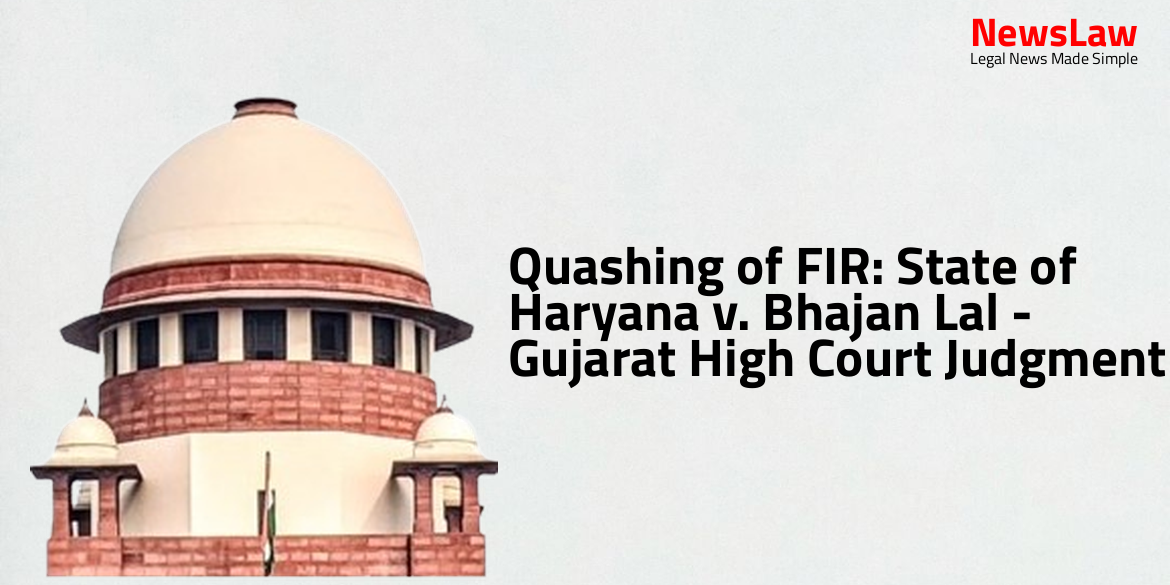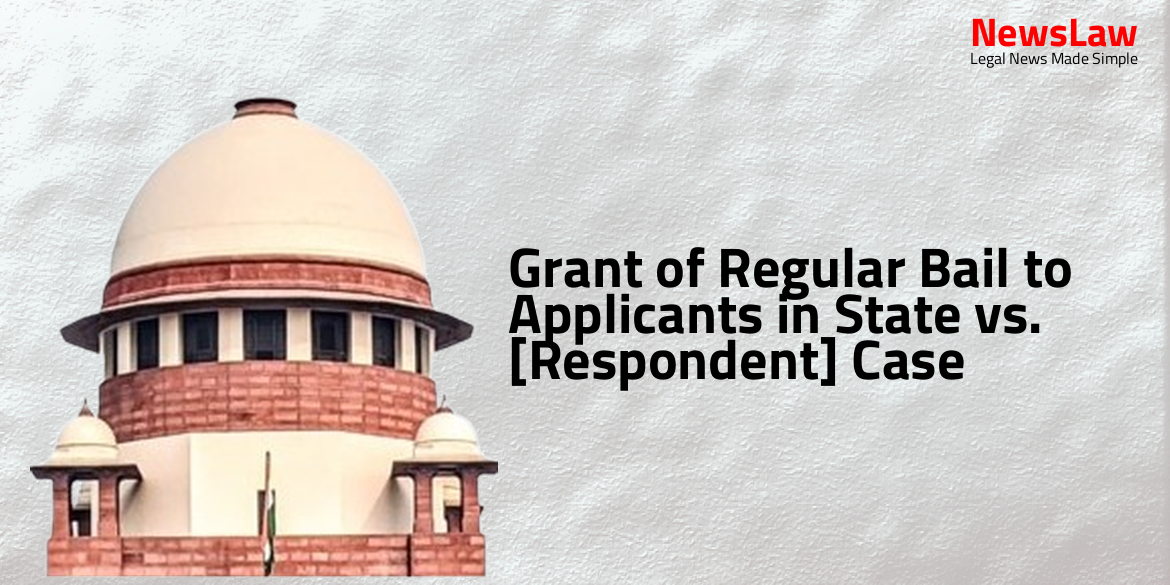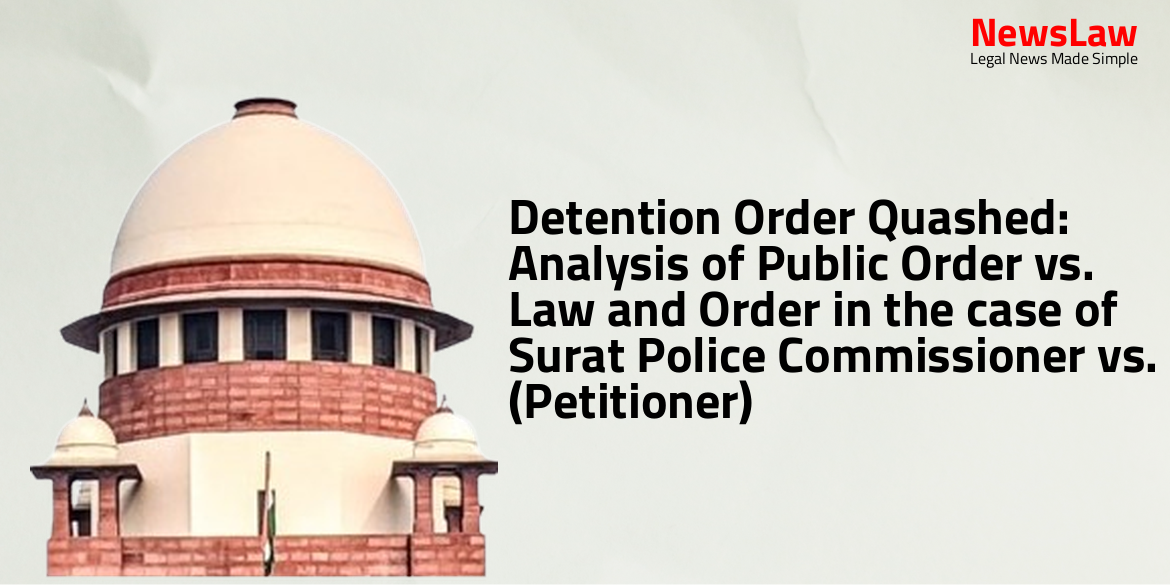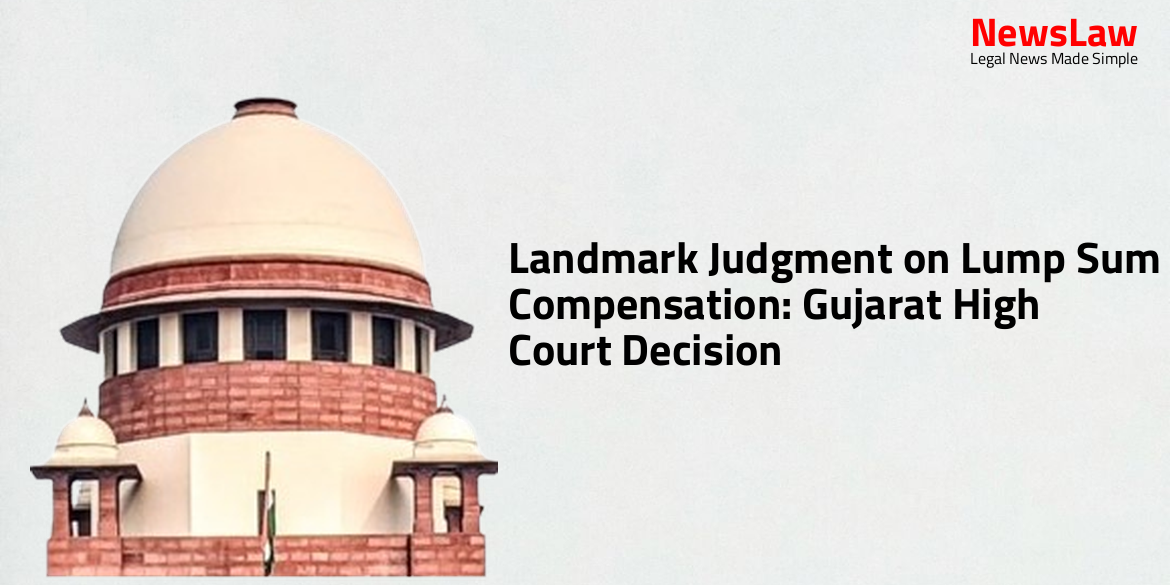In a significant ruling by the Gujarat High Court, the case of State of Haryana v. Bhajan Lal saw the quashing of the FIR following an amicable settlement between the parties outside the court. The judgment emphasizes the importance of securing the ends of justice and preventing abuse of the court process. #QuashingOfFIR #GujaratHighCourt #LegalJudgment
Facts
- Respondent no.2, the original complainant, affirmed the Affidavit dated 15.05.2024.
- Respondent no.2 stated that he has no grievance against the applicants.
- Respondent no.2 has no objection to the quashment of the impugned first information report filed by him.
Arguments
- The petitioner’s advocate submitted that the parties have settled the dispute amicably outside the Court.
- The petitioner requests the FIR to be quashed and set aside as per Section 482 of the Code of Criminal Procedure.
- The offences mentioned in the FIR include violations of the Gujarat Land Grabbing (Prohibition) Act, 2020 and sections of the IPC.
- The Assistant Police Commissioner’s report dated 21.05.2024 has been presented to the Court.
- The rule is fixed forthwith by consent of both parties.
- The advocate for the original complainant, Mr. Purvesh Prajapati, is present on behalf of the respondent.
- Learned advocates waive service of notice of rule on behalf of respective respondents.
- Mr. Jay Mehta, learned Public Prosecutor, submitted that the FIR should be quashed according to Apex Court guidelines.
- Both sides will face the rigors of criminal trial if proceedings continue, impacting their future prospects.
- Mr. Mehta does not wish to prosecute the criminal proceedings as the dispute is settled amicably.
- He requested the FIR and all subsequent proceedings to be quashed and set aside.
- Referring to the case of Gian Singh v. State of Punjab, Mr. Mehta’s request aligns with the principle laid down by the Apex Court.
Analysis
- The power of the High Court in quashing a criminal proceeding is distinct from compounding offenses under Section 320 of the Code.
- Inherent power must be exercised to secure the ends of justice or prevent abuse of the court process.
- The decision to quash a criminal proceeding where the offender and victim have settled depends on the facts of each case.
- Serious offenses like murder, rape, dacoity cannot be fittingly quashed even with a settlement.
- Commercial, financial, civil, partnership offenses or family disputes may be quashed if conviction possibility is remote due to compromise.
- The High Court can end a criminal case to prevent injustice despite settlement between parties.
- The State of Haryana v. Bhajan Lal case provides categories for exercising extraordinary power under Section 482 to prevent abuse of court process.
- In the current case, the dispute is private and personal, with no serious injury or mental depravity involved.
- The specific part of the judgment discusses the evidence that was pre-relied upon by the parties.
- It notes that both parties had relied on certain documents and evidence during the trial.
- The judgment emphasizes the importance of pre-relied evidence in establishing the claims made by the parties.
- This part of the judgment sets the stage for the final decision based on the evidence presented earlier in the trial.
- Settlement reached between the parties
- No possibility of conviction in the case
- Court exercises inherent powers under section 482 of the Cr.P.C.
- Ends of justice to be secured
- Continuation of proceedings would waste judicial time
- No scope for further proceedings
Decision
- The petition has been allowed.
- Direct service has been permitted.
- The FIR No.11208044220618 registered with Pradyumannagar Police Station, Dist. Rajkot City has been quashed and set aside.
- The proceedings initiated in pursuance of the FIR have been quashed.
- The Rule is made absolute.
Case Title: MOHITKUMAR AMRUTLAL MAKVANA Vs. STATE OF GUJARAT
Case Number: R/CR.MA/9547/2024



